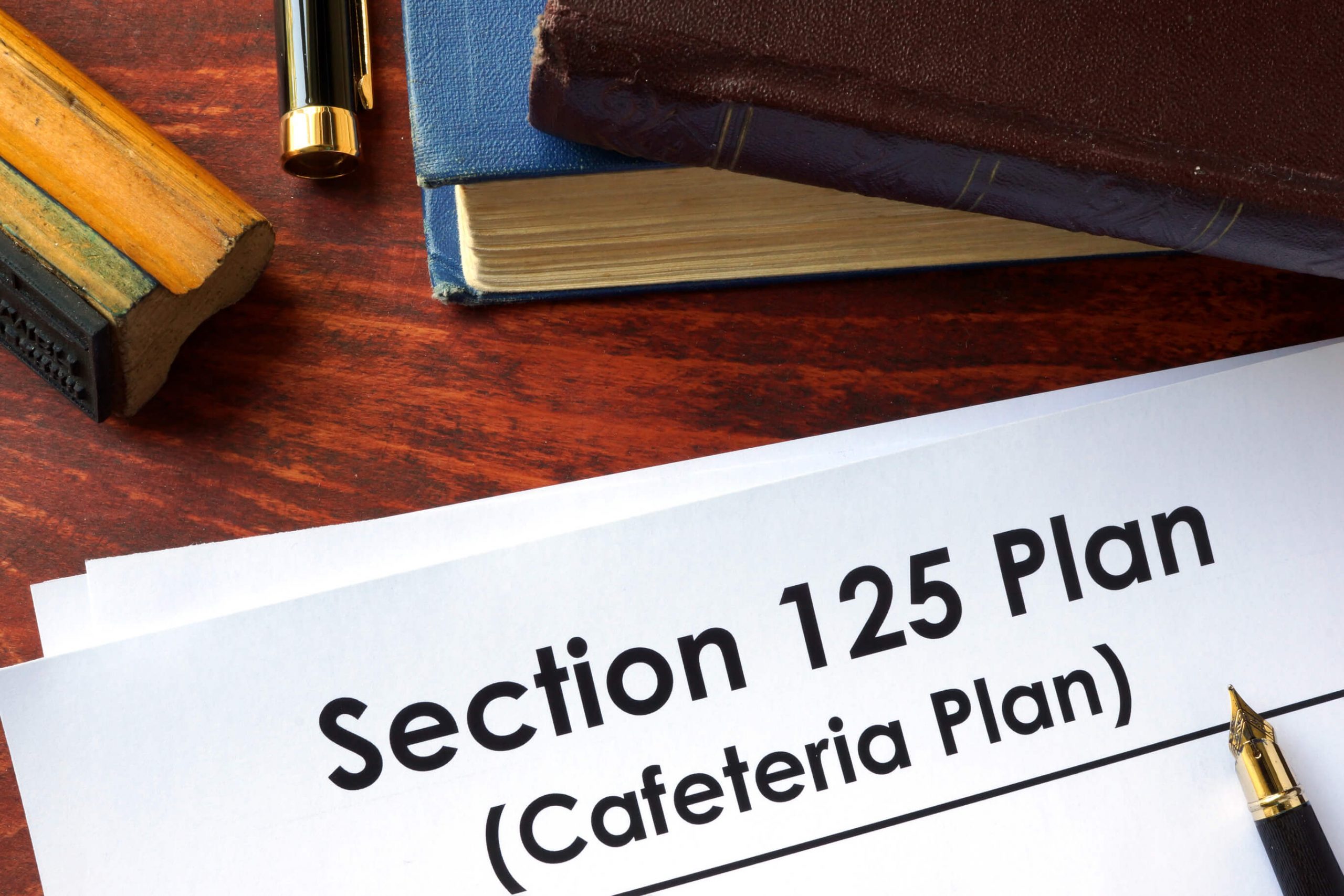The IRS has authorized temporary changes to Section 125 Cafeteria Plans.
 These changes extend the claims period for health flexible spending arrangements (FSAs) and dependent care assistance programs and allow taxpayers to make mid-year changes.
These changes extend the claims period for health flexible spending arrangements (FSAs) and dependent care assistance programs and allow taxpayers to make mid-year changes.
This authorization addresses unanticipated changes in expenses because of the 2019 Novel Coronavirus (COVID-19) pandemic and provides that previously provided temporary relief for high deductible health plans may be applied retroactively to January 1, 2020. It also increases for inflation the $500 permitted carryover amount for health FSAs to $550.
Before discussing these temporary changes any further, let’s back up and explain what a cafeteria plan is.
What Is A Cafeteria Plan?
A cafeteria plan is a separate written plan maintained by an employer for employees that meets the specific requirements of and regulations of Section 125 of the Internal Revenue Code. It provides participants an opportunity to receive certain benefits on a pretax basis. Participants in a cafeteria plan must be permitted to choose among at least one taxable benefit (such as cash) and one qualified benefit.
A qualified benefit is a benefit that does not defer compensation and is excludable from an employee’s gross income under a specific provision of the Code, without being subject to the principles of constructive receipt. Qualified benefits include the following:
- Accident and health benefits (but not Archer medical savings accounts or long-term care insurance)
- Adoption assistance
- Dependent care assistance
- Group-term life insurance coverage
- Health savings accounts, including distributions to pay long-term care services
The written plan must specifically describe all benefits and establish rules for eligibility and elections.
A Section 125 plan is the only means by which an employer can offer employees a choice between taxable and nontaxable benefits without the choice causing the benefits to become taxable. A plan offering only a choice between taxable benefits is not a Section 125 plan.
Who May Receive Benefits Under a Cafeteria Plan?
The plan may make benefits available to employees, their spouses, and dependents. It may also include coverage of former employees but cannot exist primarily for them.
Is There a Filing Requirement for a Cafeteria Plan?
If you only have a cafeteria plan, you are generally not required to file Form 5500 or Schedule F. However, if you have a welfare benefit plan, you may be required under the Department of Labor regulations to file a return for that plan.
What Is a Flexible Spending Arrangement?
A Flexible Spending Arrangement (FSA) is a form of cafeteria plan benefit, funded by salary reduction, that reimburses employees for expenses incurred for certain qualified benefits. An FSA may be offered for dependent care assistance, adoption assistance, and medical care reimbursements. The benefits are subject to an annual maximum and are subject to an annual “use-or-lose” rule.
The maximum amount of reimbursement which is reasonably available to a participant for such coverage must be less than 500 percent of the value of the coverage.
In the case of an insured plan, the maximum amount reasonably available must be determined based on the underlying coverage. An FSA cannot provide a cumulative benefit to the employee beyond the plan year.
What Are the Benefits of the Temporary Changes?
In addition to increasing the limit for unused health FSA carryover amounts from $500 to a maximum of $550, as adjusted annually for inflation, the temporary changes also provide greater flexibility for taxpayers by:
- extending claims periods for taxpayers to apply unused amounts remaining in a health FSA or dependent care assistance program for expenses incurred for those same qualified benefits through December 31, 2020.
- expanding the ability of taxpayers to make mid-year elections for health coverage, health FSAs, and dependent care assistance programs, allowing them to respond to changes in needs as a result of the COVID-19 pandemic.
- applying earlier relief for high deductible health plans to cover expenses related to COVID-19, and a temporary exemption for telehealth services retroactively to January 1, 2020.
A Final Word
If you have a cafeteria plan with your employer, contact your employer for details specific to your plan.
Stay safe. Stay well. Stay home.
Bayshore CPA’s, P.A. are your local Certified Public Accountants
and Tax Resolution Specialists conveniently located
in Mooresville, North Carolina
Image: Photo 82945037 © Designer491 – Dreamstime.com